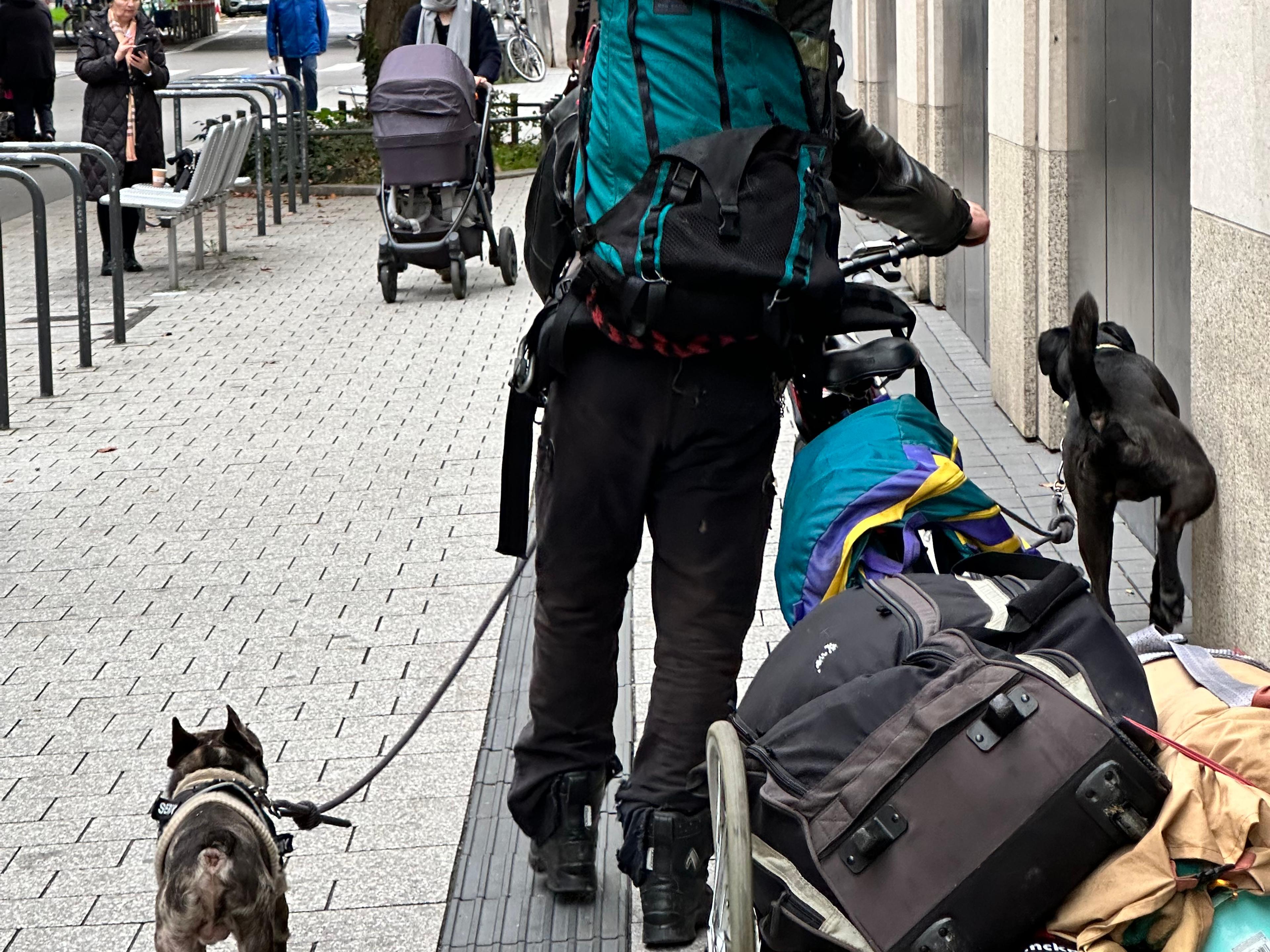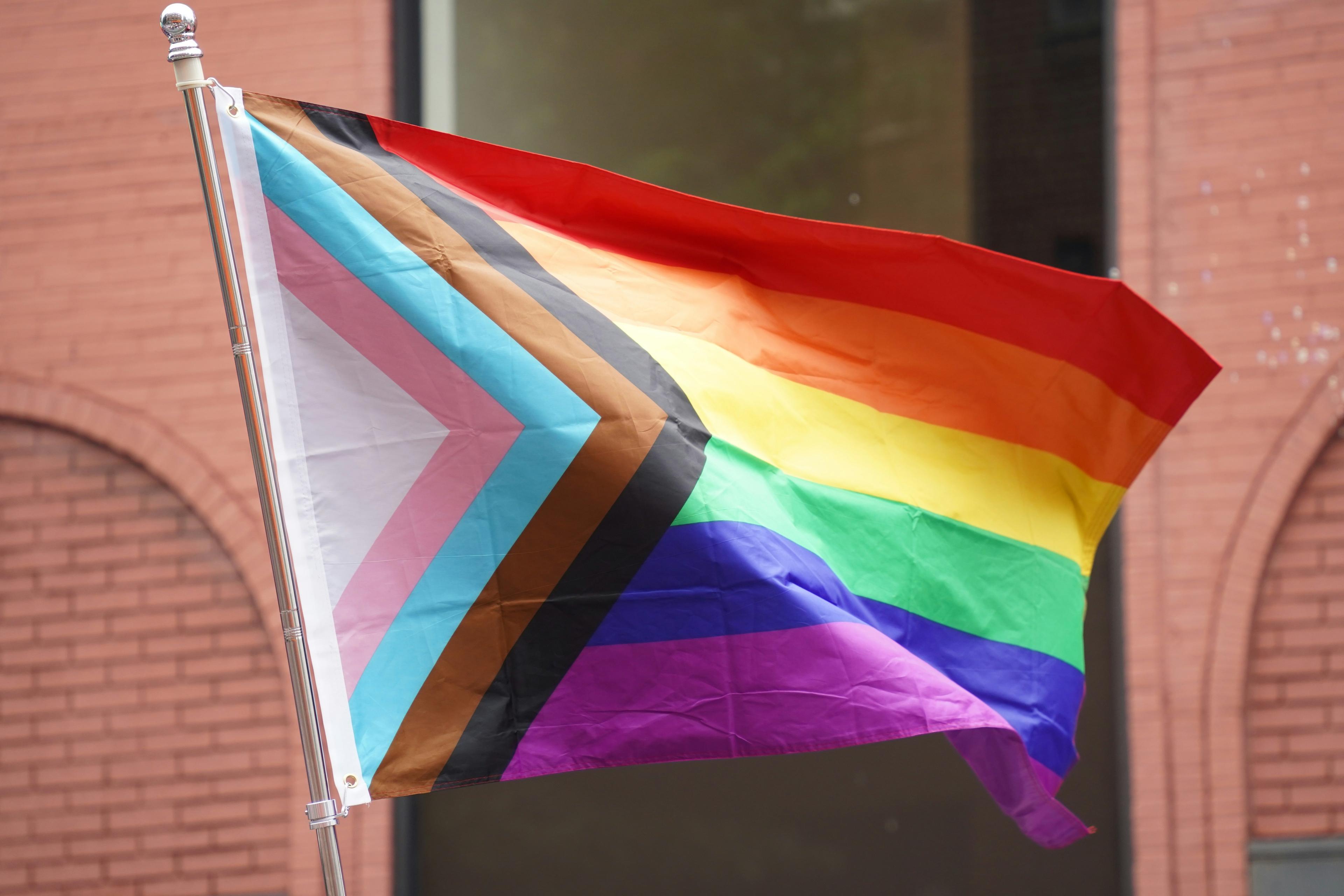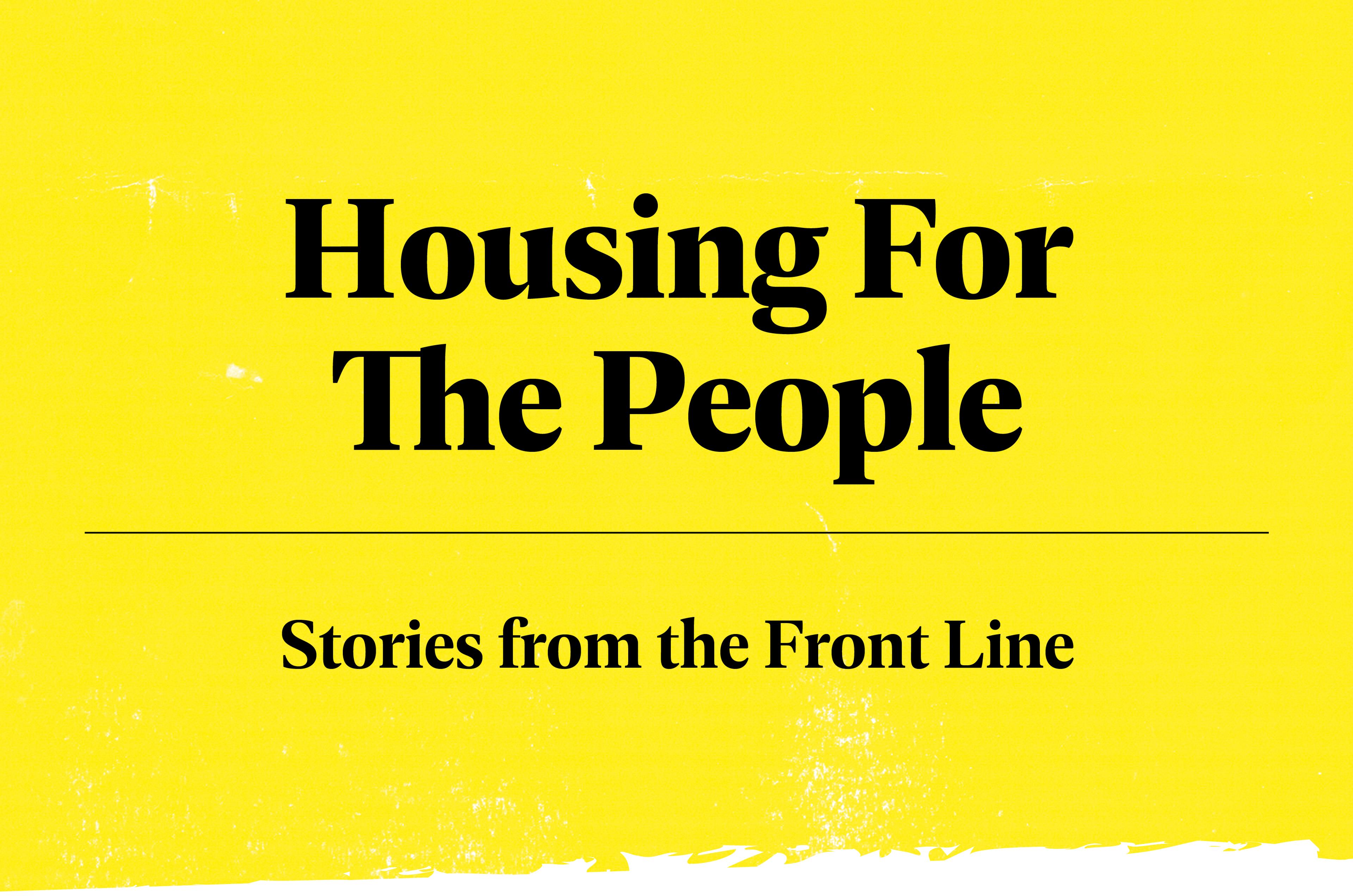The criminalisation of poor people on local public transport: Going to prison for not having a ticket
Text by Daniel Knaus, with a contribution by Janita-Marja Juvonen
- Lived experience

Many homeless people in Germany go to prison for “riding public transport without a ticket.” But often, they have no other choice: they might be short of change, but long distances lie between welfare infrastructures, and their feet are already sore. The fatal choice between sacrificing mobility or being punished also affects poverty-stricken people who are not homeless. In November, activist Janita-Marja Juvonen gave a speech - in front of the left parliamentary group in the German Bundestag - in support of all people in need and without a ticket, as part of the event ‘Do we live in a justice system based on class?’
Juvonen started living on the streets when she was 14. At the age of 16, she was permanently homeless, and this lasted for 14 years. When she was nearly 28, she finally found a way out. Nowadays, at 48-years-old, she does guided city tours on the topic of homelessness in her hometown of Essen. In addition, she teaches people in schools, institutions and workshops about life on the streets. The following is an extract from her speech detailing her experiences of the insidious criminalising consequences of not being able to afford the fare to ride public transport.
"When I was in court, the judge and the prosecutor said to me: 'You can‘t carry on like this. You have to learn that this has consequences.' That’s why I immediately got a prison sentence, even without previously getting into trouble with the police. It was supposed to be an educational measure. Since the order to go to prison could not be delivered because I had no registered home address, a warrant was issued for my arrest. One day, the police came to the bridge under which I slept and said to me: 'JJ, we have a problem. There’s a warrant for you out there.' The police officers were not pleased when they heard why they now had all this additional work. Arrest warrant. Handcuffs. Prison.
"Nowadays I often hear: 'People who can’t afford public transport should walk instead' – and I realise that many citizens of this country cannot sympathise with or understand the lived experience of a person for whom the street is the centre of existence. My shoes were never new. They were never broken in by my feet. They were shoes that someone discarded and donated after extensive use. That’s why I permanently suffered from sore spots and even bloody and ulcerous blisters on my feet.
"I could only get medical help, for example from the mobile doctor, if I went to the place where the doctors were. But even then I was not able to keep the wounds as clean as would have been necessary. Physical movement was often painful. But I had no money for public transport.
"So I ended up in prison in my early 20s. I would sit in a cell for 23 hours. One hour outside per day. What would have helped me? A change in my living situation. But nothing happened. To this day, I do not understand what kind of educational measure this was supposed to be. Homelessness was my life before – and it was the life I was released back into afterwards.
"To get back to my city and my bridge, I had to use public transport. I still didn’t have the money for it. Luckily, my buddies kept a sleeping spot for me. That was not a given. So everything returned to how it was. Except that the taxpayer had paid a lot of money for each of the days I spent in prison.
"The government should abolish the statutory offence (paragraph 265a of the German criminal code). Put an end to the punishment of poverty, because people rely on mobility. Everyone should be able to travel on local public transport. People suffering from poverty cannot and should not be punished because they cannot afford a ticket. The situation back then – the looming ticket inspection and the subsequent exposure in front of the other passengers – still affects me today. Even today, with a ticket, I am very worried that as a person in poverty, I could find myself in this position again - that I can afford neither the ticket nor the consequent fine. It’s not a matter of 'don’t want to', it’s a matter of 'can’t'. The government needs to realise this, and many of my fellow citizens need to understand this, too. The sentence 'Tickets please!' instills fear in me to this day."

Especially in the colder months homeless people carry a lot with them; the necessary mobility quickly becomes arduous. Photo courtesy of Trott-war.
Freedom for Düsseldorf street paper vendor Gisa
Daniel Knaus, a journalist for German street paper Trott-war, writes about a vendor who has experienced this form of punishment.
In early November 2022, a seller of the Düsseldorf street paper fiftyfifty was also incarcerated for “riding public transport without a ticket.” Formerly homeless Gisa (56) had come out the other end of a heroine withdrawal, had committed no offenses for the past nine years and had fought hard to get back to a “normal” life, with a social support network and a flat, only to be sent off the train because financial worries hadn’t allowed her to buy a ticket. Six months in prison are a heavy blow for a woman who, thanks to the street paper and a lot of courage, became a social city tour guide and could provide a valuable service to society as a mediator – if only she were free. You can find the latest updates on the case online with the hashtag #freegisa.
Another reason why homeless people need their spots on public transport – warmth! If you spend the winter months shivering on the streets, you need every chance to warm up a bit, even if you are short of change for a ticket.
Translated from German by Eva Rojas via Translators without Borders
Support our News Service
We believe journalism can change lives, perceptions, and society - underpinning democracy for a more equitable world. Learn more about the INSP News Service and how to support it here.

